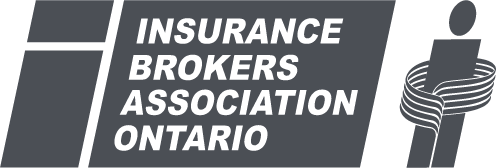Succession Planning: Due Diligence is Key
This was the main message from last week’s seminar on succession planning, Realizing the Full Value of Your Brokerage, co-hosted by BMO Bank of Montreal. Approximately 120 brokers joined us at BMO’s Institute for Learning to better understand their options and discuss strategies to maximize the value of their brokerage. “The brokerage asset makes up the vast majority of your family’s net worth,” said host speakers to the audience, predominately brokerage owners. Here are a few takeaways:
CONSIDER YOUR SUCCESSOR
Whether it’s a family member, key employee, external producer or strategic investor, it’s important to align with future needs over current needs. If it’s a family member you’re considering, ask yourself how active they are in the business. Do they want to be involved? Do they bring the right expertise? “Don’t force your children’s hand to take over the brokerage. Like all things in life, they will do well in what they enjoy doing.” If it’s non-family stepping in, are you comfortable handing over operational decision-making? Does the individual have the right skill set? Consider the balance between bringing in a well-rounded individual versus someone to fill specific gaps. Starting with partial ownership was a suggested strategy: “Ensure key employees have skin in the game before you fully hand over the reins.”
PREPARATION IS CRITICAL
Maximize early exposure to clients, markets and industry contacts. If it’s possible, provide job shadowing. Perhaps more difficult – learn to relinquish control and live with the consequences. Learn to embrace decision-making by committee and remain receptive to new ideas. Give yourself a reality check by admitting mistakes, removing emotion from the equation and adjusting your mindset. “People used to think that knowledge is power. False. Dissemination of knowledge is power.”
EXECUTING A PLAN
It’s important to review your brokerage integration plan. Is the timing appropriate for all parties? Out of courtesy, consider keeping those who’ve worked with you for many years in the loop. Regarding implementing non-service and/or non-solicit agreements, it’s important to get something in writing to ensure the value you’ve purchased or sold is retained. Service and retention of a book is key – if you lose people by way of attrition, it’s a recipe for disaster. Leverage a letter of intent as your roadmap. You need it, so don’t avoid it because of the cost. People often try to non-formalize the process in order to save on legal fees, but formalization is important to ensure a smooth transition.
FINANCIAL CONSIDERATIONS
Main advice on both sides of the equation: bigger isn’t always better – if a deal becomes too rich, walk away. Secondly: think in terms of dollars, not multiples. Focus on the opportunity the business brings. Don’t overpay assuming you’ll realize enough growth to pay back your loan. We’re living in a growth-constrained world. For purchasers: be realistic about what you’re buying and what it takes to extract value from the business. For financial expertise or otherwise, if you’re considering enlisting specialists (like BMO), gage the complexity of your deal and act accordingly. Lastly, it’s important to clean up your balance sheet. Identify where your operation might be a little flat and cut items the business doesn’t require.
It’s never too early to start planning. There are alternatives to selling your brokerage to insurance carriers – with the right planning, you won’t need to take this route.
Thanks to BMO for their continued partnership in broker perpetuation and succession. For questions on succession financing, acquisition financing, working capital financing, capital asset financing and premium financing, connect with Romal Bryce at 416.927.6062.






Most comments
Winter Tire Discount 101
All
16 comments
When Your Insurance Policy Comes Into Play
All
8 comments
Digital Marketing Trends for Insurance Brokers
All
6 comments